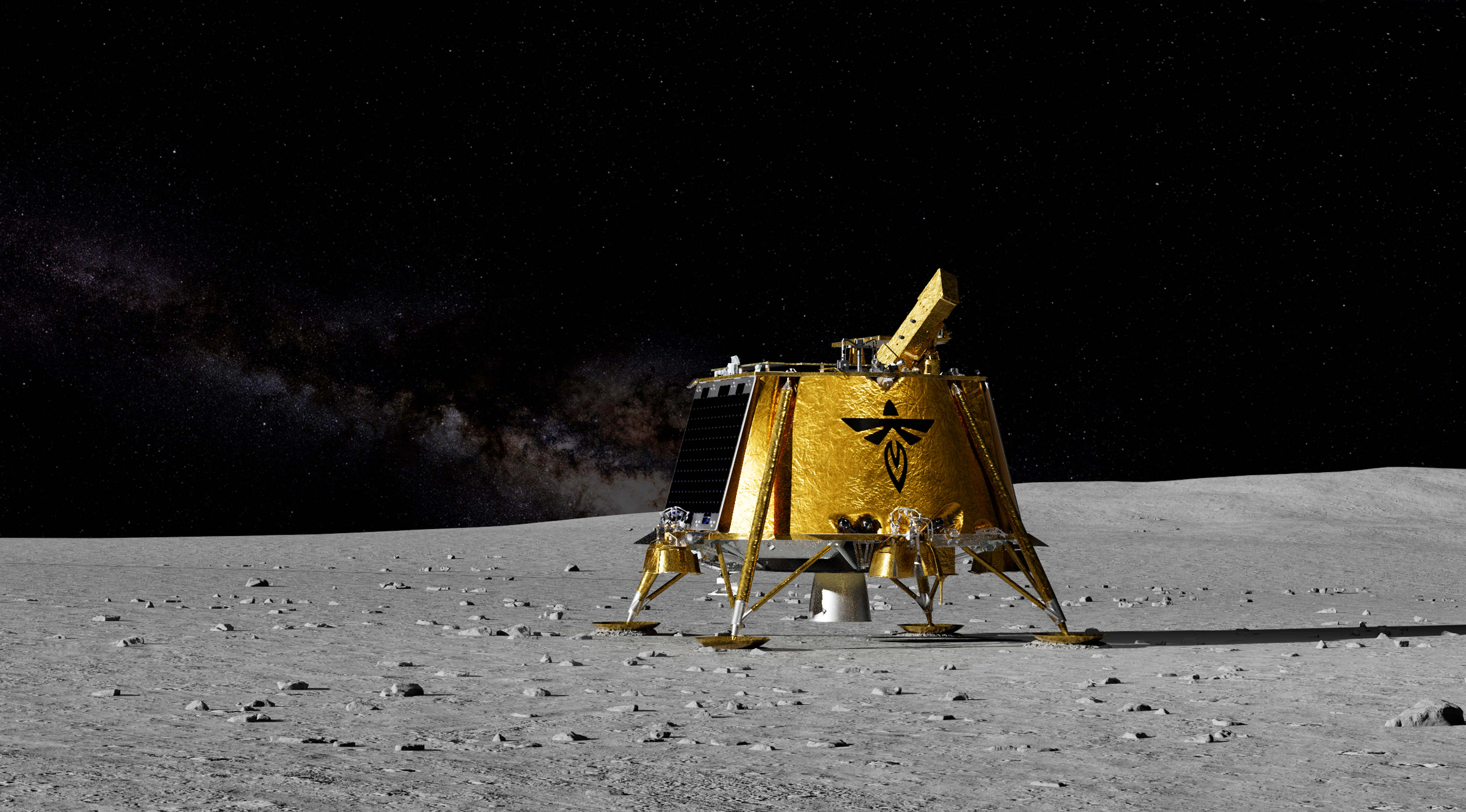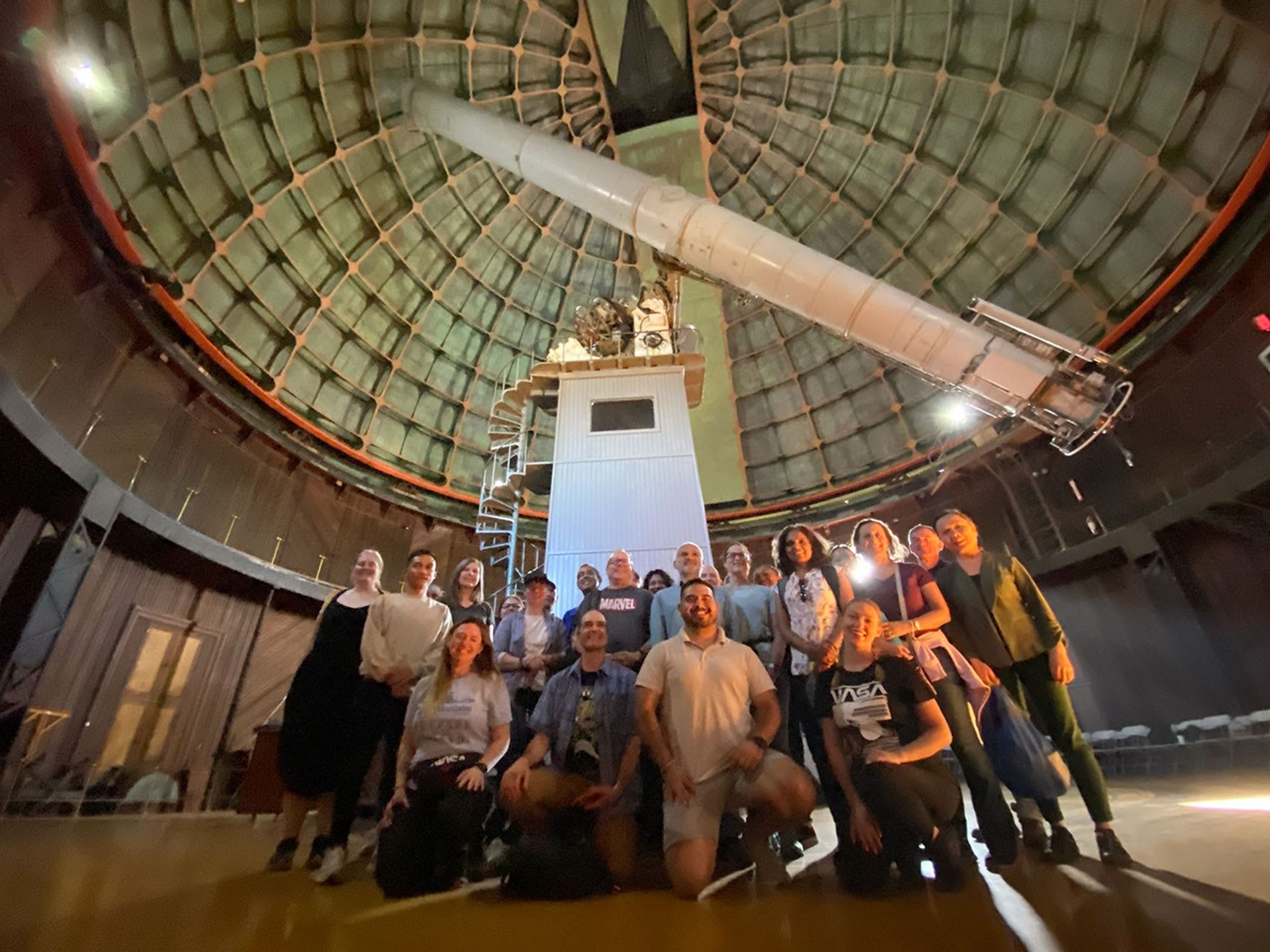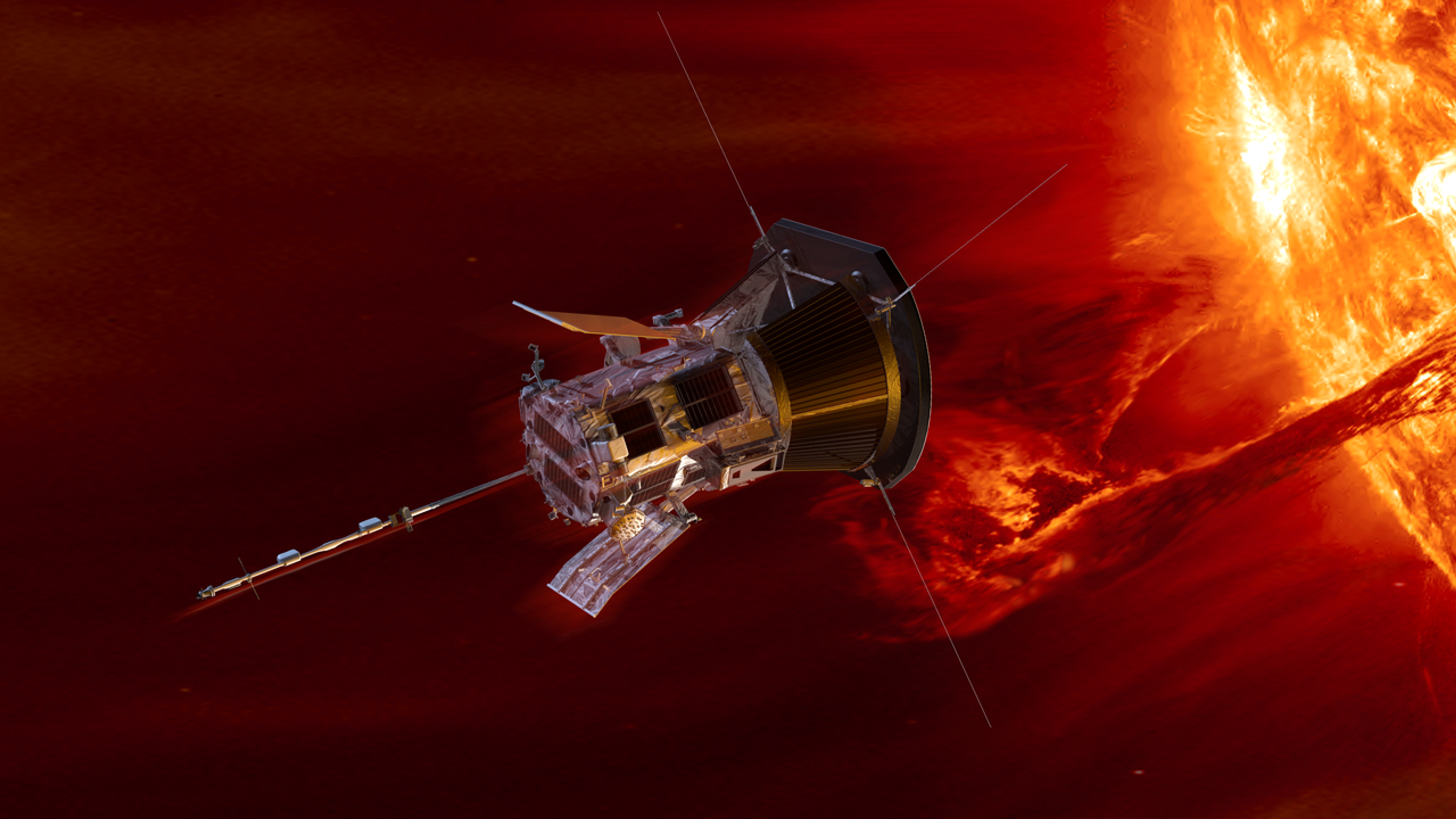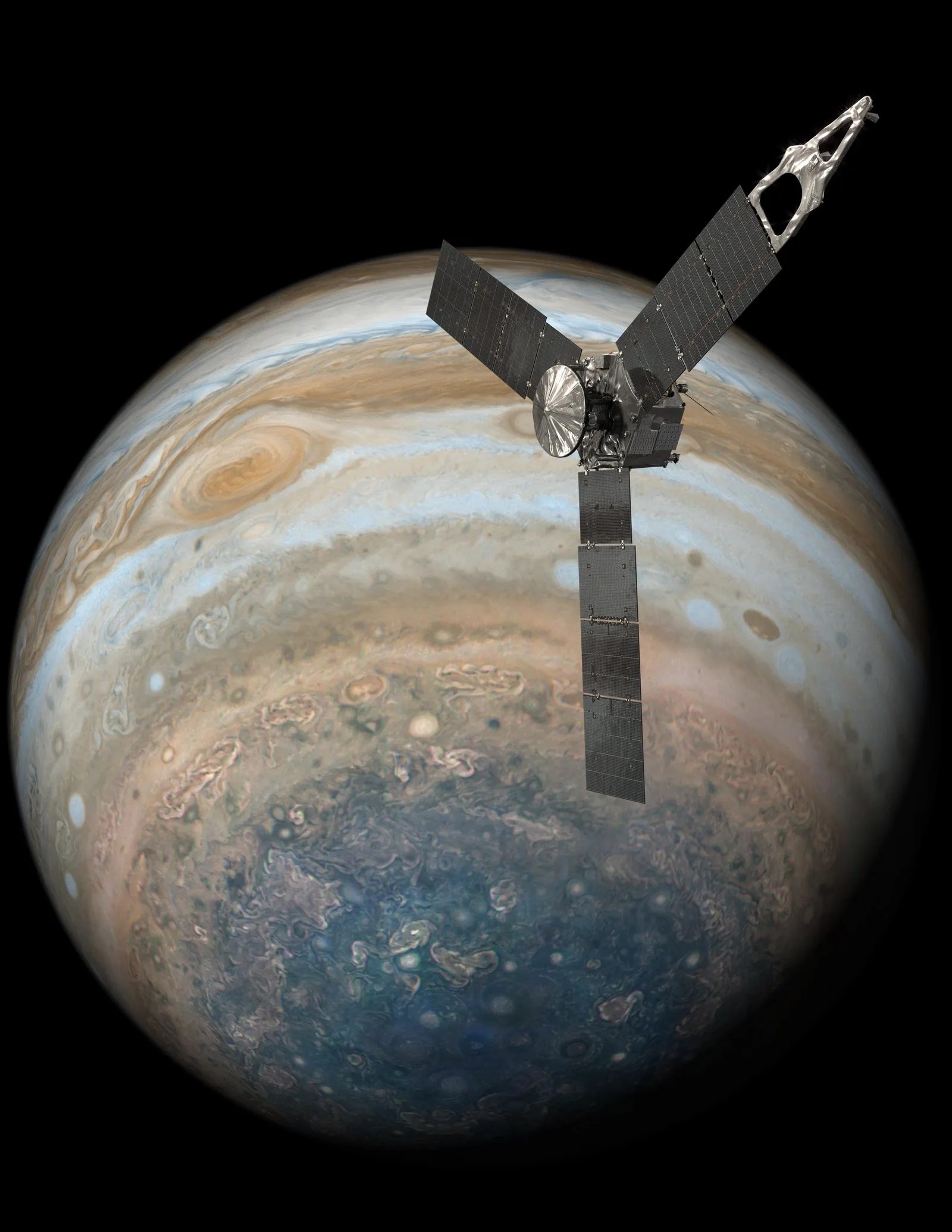1 min read
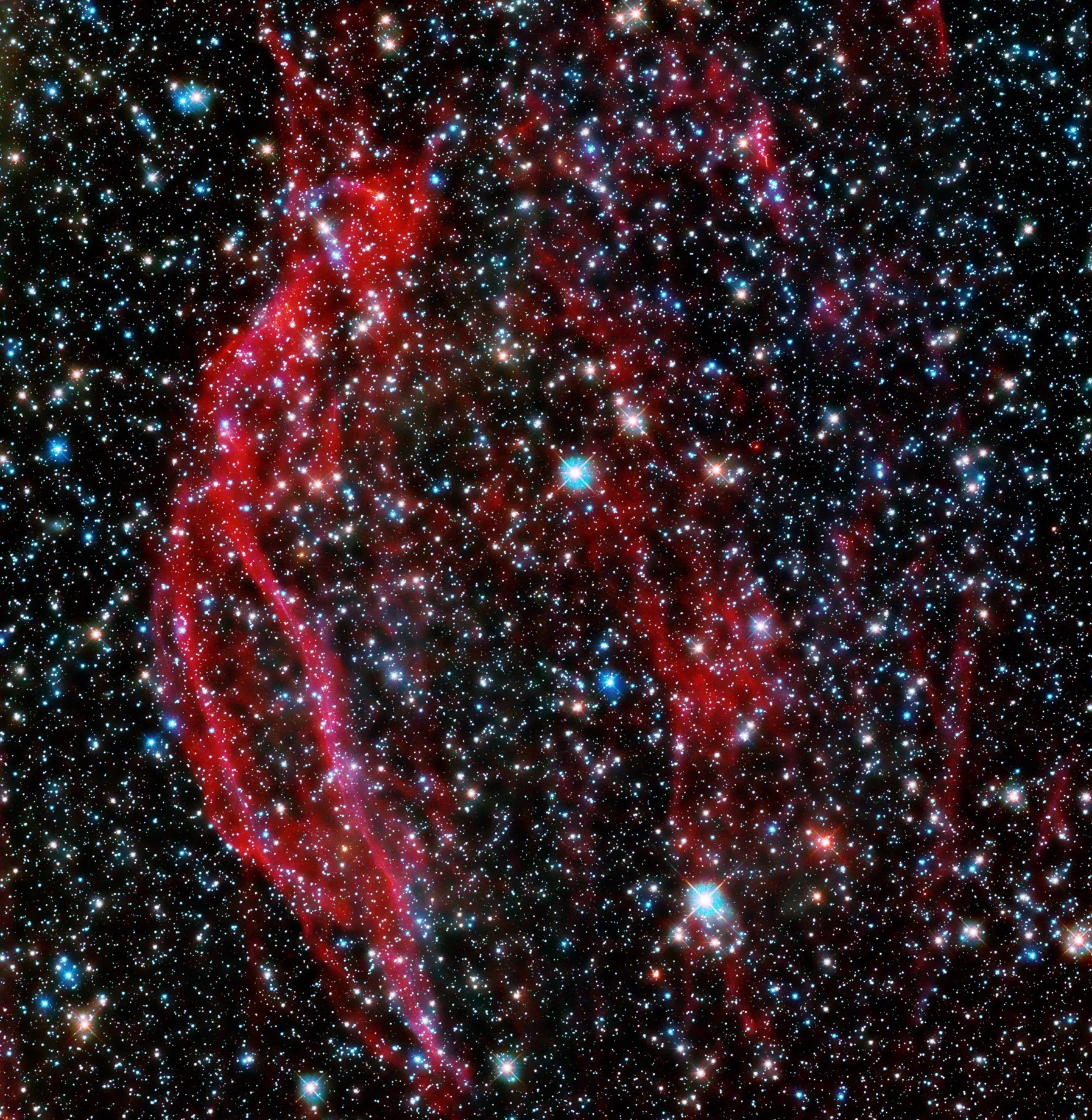
These cosmic ribbons of gas have been left behind by a titanic stellar explosion called a supernova. DEM L249 is thought to be the remnant of a Type 1a supernova, the death of a white dwarf star. White dwarf stars are usually stable, but in a binary system – two stars orbiting each other – a white dwarf can gravitationally pull so much matter from its companion that it reaches critical mass and explodes.
DEM L249, located in the Large Magellanic Cloud, is an unusual supernova remnant. Astronomers using NASA's Chandra X-ray Observatory and the European Space Agency's XMM-Newton found its gas was hotter and shone brighter in the X-rays than the remnant of a typical Type 1a supernova. Astronomers suspect DEM L249’s white dwarf star was more massive than expected – heavier stars expel more gas – which also means it would have died earlier in its lifecycle.
Hubble took this image while searching for surviving companions of white dwarf stars that went supernova in the Large Magellanic Cloud.
Media Contact:
Claire Andreoli
NASA's Goddard Space Flight Center
301-286-1940

